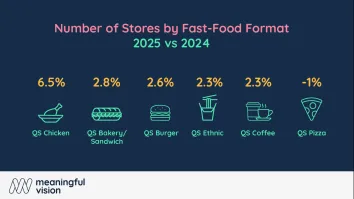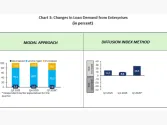
Chains told to prepare for autumn inflation spike
Lynx Purchasing also advised brands on potential shortages of menu items.
Catering and hospitality operators need to take steps to prepare for an “inevitable” spike in inflation across the rest of the year, as well as potential shortages of menu items, according to buying specialist Lynx Purchasing.
The warning comes as Lynx publishes a Summer Market Update looking at supply issues in the months ahead.
“The ‘perfect storm’ is about to break,” Lynx Purchasing managing director Rachel Dobson said. “The Bank of England is forecasting that inflation will hit 3% this autumn, other economists suggest 4%, and for some key food and drink sectors it’s like(ly) to be higher still.”
“The labour shortage, the impact of Brexit on imports, higher distribution and fuel costs, and the continuing impact of the Covid pandemic globally are all factors. The effect of inflation not only on costs, but also potentially on consumer confidence, coming as operators are working to rebuild after lockdown, is as serious as any challenge the sector has faced in recent years,” she added.
Chains were advised to buy UK produce in season “wherever possible,” Dobson said.
“Even for anyone who’s worked in purchasing for some time, this is as significant and widespread a challenge as we’ve seen. The same labour shortages hospitality is seeing on the front line stretch back through the supply chain via warehousing and distribution to picking and packing.”
Operators, she added, will have to factor in higher prices and potential shortages as they plan menus for the key Christmas period.
“For example, there’s a global shortage of cooking oil, which is not only a store cupboard staple in its own right, but an essential ingredient in many other products. Commodities such as rice, grain and coffee are traded globally, and prices inevitably go up when fuel and transport costs are high,” she said.
“It’s going to take a concerted effort to move forward. At government level, the problems of post-Brexit bureaucracy and the challenges of employing overseas labour have to be addressed. Internationally, the roll-out of COVID vaccines is key.”
Those who can keep their menus flexible, Dobson said, will be best placed to deal with rising prices.
“Operators may have to get used to better menu planning, more notice for suppliers, and fewer and bigger deliveries in future.”

























